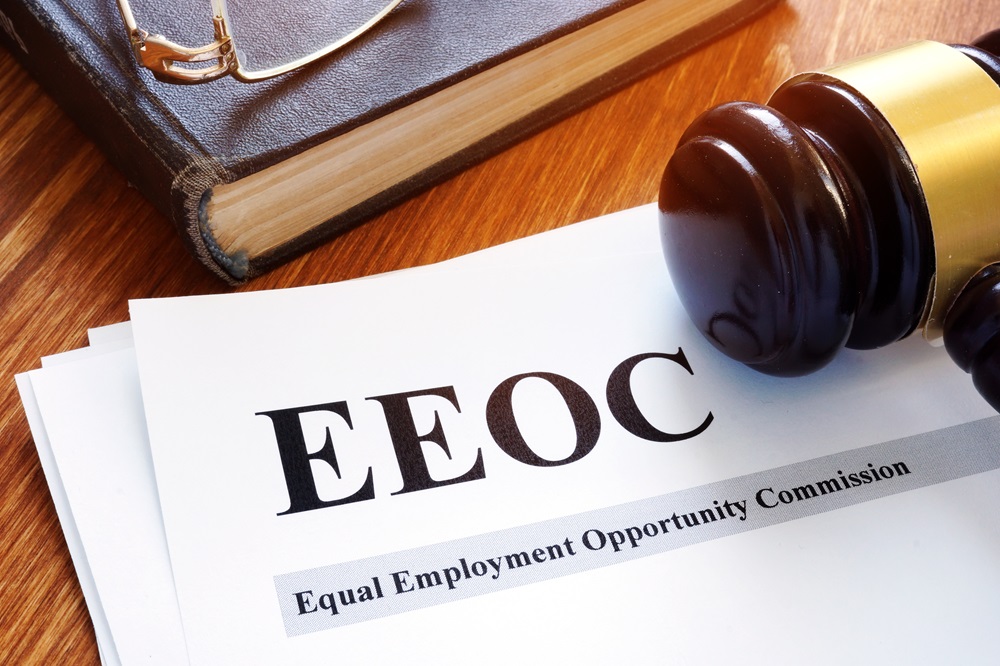Ensuring equal employment opportunity (EEO) keeps the constantly shifting modern workplace environment fair and inclusive. The Equal Employment Opportunity Commission (EEOC) upholds these principles by enforcing federal laws preventing discrimination based on protected characteristics. Created to protect employees from unfair treatment, the EEOC oversees complaints, investigates charges, and promotes diversity and workplace equality. A deep understanding of the Equal Employment Opportunity Commission is important for both employers and employees, as it lays out policies and practices shaping the modern workforce landscape.
History and Establishment of the EEOC
The Equal Employment Opportunity Commission (EEOC) was established in 1965, a significant event in the timeline of the United States’ civil rights movement, which had been happening for several years prior. Built off the Civil Rights Act of 1964, another important piece of legislation developed during a transformative period in American history, the EEOC was created to enforce the prohibition of employment discrimination based on race, color, religion, sex, and national origin. This moment demonstrated the nation’s commitment to fix systemic inequalities in the workplace, providing a framework for the EEOC’s to promote equal opportunities and fight discriminatory practices across numerous industries.
The EEOC’s Mission and Purpose
The main mission of the Equal Employment Opportunity Commission (EEOC) is enforcing federal laws making it illegal to discriminate against job applicants and employees based on protected traits like race, color, religion, sex, national origin, age, disability, or genetic information. This mission highlights the EEOC’s purpose of ensuring workplaces across the United States treat their employees fairly and provide them equal opportunities.
The EEOC applies these rules to a wide range of employers, including private businesses, state and local governments, educational institutions, and employment agencies. This way, the EEOC creates a workplace environment where individuals thrive due to their abilities and qualifications, free from illegal discrimination.
Types of Discrimination Addressed by the EEOC
The Equal Employment Opportunity Commission (EEOC) addresses a wide range of discrimination types to preserve workplace equality and fairness. In terms of race and color, the EEOC prevents discrimination based on these characteristics, making sure workers are treated fairly regardless of their racial or ethnic background. Protections against Religious discrimination extend to employees facing bias or harassment because of their beliefs or practices. Sex and gender protections cover issues like pregnancy discrimination, gender identity, and sexual orientation.
National origin discrimination protects people from biases based on their birthplace, ancestry, or ethnicity. Age discrimination protections ensure people are treated fairly regardless of their age, especially for workers 40 and older. The EEOC also enforces rights for those with disabilities, so they can get reasonable accommodations to perform their job duties. Genetic information discrimination protections prevent employers from using genetic information in hiring, firing, or promotion decisions. Additionally, the EEOC protects employees from retaliation for reporting workplace discrimination or participating in employment discrimination investigations. This way, it keeps the workplace environment fair and accountable for its actions.
EEOC’s Functions and Authority
Several essential functions and authorities allow the Equal Employment Opportunity Commission (EEOC) to carry out its mission in combating employment discrimination and maintaining workplace equality. During EEOC investigations of employment discrimination, the office performs thorough inquiries to gather evidence and determine whether what happened was unlawful. Mediation and settlement processes provide alternative resolutions, meant to resolve disputes efficiently and amicably without actual litigation. In cases where settlement isn’t feasible, the EEOC may litigate to pursue justice on behalf of the aggravated parties, enforcing federal laws and setting legal precedents.
Additionally, the EEOC does a lot of outreach and education, offering programs and resources that educate employers and employees about the rights and responsibilities they have under anti-discrimination laws. These efforts promote proactive compliance and inclusivity in workplaces across the nation.
Filing a Charge with the EEOC
Knowing how to file a charge with the Equal Employment Opportunity Commission (EEOC) is important for anyone facing workplace discrimination. Anyone who believes they have experienced discrimination based on the protected traits mentioned above can file a charge, with qualifications including incidents involving employers covered by EEOC laws.
They can begin the process of filing an EEOC charge by submitting an intake questionnaire. This initiates a formal charge, and the EEOC will investigate the charge to determine if it falls under their jurisdiction. If it does, the charge is officially filed, and the EEOC will notify the employer, starting an investigation or mediation. Confidentiality is an important part of this process, ensuring secrecy in the details of the charges and the identities of the parties involved, keeping the environment for reporting and addressing discrimination safe.
Impact of the EEOC on the Workplace
The Equal Employment Opportunity Commission (EEOC) has a dramatic impact on workplaces across the country, with numerous examples of its role in advancing equality. Significant cases, such as those dealing with systemic race or gender discrimination, set important legal precedents and caused widespread changes in employer practices. Statistical data reveals how widespread workplace discrimination really is, with thousands of charges filed annually. Many of these charges resulted in resolutions that included settlements, corrective actions, or policy reforms. The EEOC contributes to large amounts of workplace improvements, keeps those workplaces fair and inclusive, and protects employees from discrimination.
The EEOC’s Future Role
The important role of the Equal Employment Opportunity Commission (EEOC) in preventing discrimination and keeping workplaces equal is apparent. Its comprehensive efforts—from investigating charges and facilitating settlements to litigating cases and providing educational resources—have significantly advanced workplace fairness.
In the future, the EEOC will face new challenges like adapting to new forms of discrimination as they emerge and keeping job markets compliant as they evolve. Therefore, individuals must stay vigilant and proactive in the face of employment discrimination. If you experience or witness workplace discrimination, use the EEOC’s resources to report these issues and get them fixed. Doing so keeps American workplaces equitable and inclusive for everybody.




